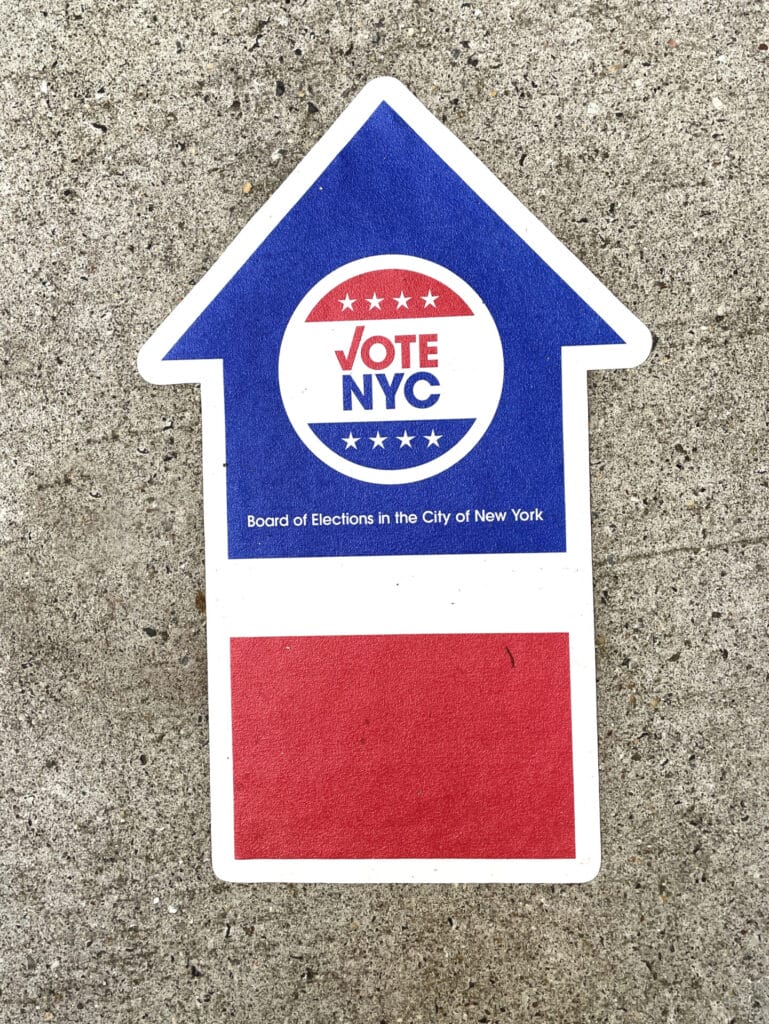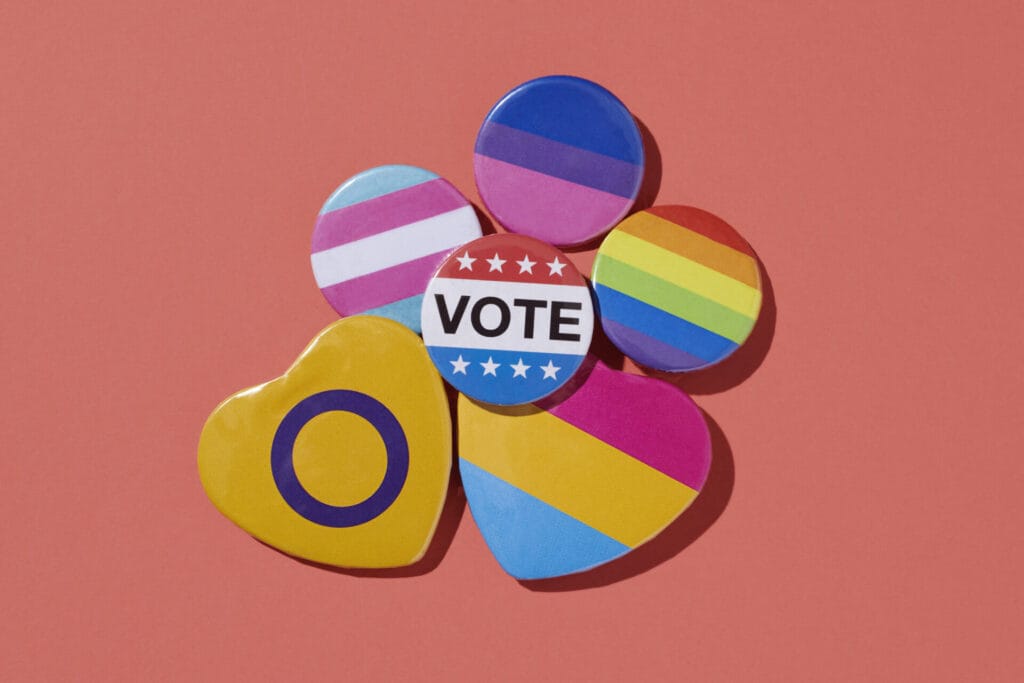At HeadCount’s Annual Voter Registration Block Party in New York City, a number of youth and student voters told GLAAD where they’re registered, their voting plan, and why they’re voting in the 2024 election.
“I just registered to vote in New York,” Matthew DeAlba told GLAAD on National Voter Registration Day (NVRD) with HeadCount in New York City. DeAlba is voting in New York for the first time, but he’s no stranger to the process.
“I used to help my grandparents and my family with their mail-in-ballots just because it was more accessible for them. But I’m excited for, at least [for] my first time voting, to go in-person, get my “I Voted” sticker and rep it.”
DeAlba is most concerned about LGBTQ issues, specifically transgender medical care, education, and healthcare.

94 percent of LGBTQ Americans are motivated to vote, according to GLAAD’s voter engagement research. DeAlba is one of those Americans.
“I also want to see more people like me voting,” DeAlba said. “I really hope to see, specifically, the Latino community come out and vote and use their voice for what they believe in.”
DeAlba was joined by many students on Tuesday September 16 at LaGuardia Place where HeadCount held their annual Voter Registration Block Party on NVRD The event is joined by over 120 across 60 cities in the US. In NYC, HeadCount was joined by a number of sponsors including Oatly, Tony’s Chocolonely, Yerba Mate, NYC Votes, Animal Haven Rescue, NYU Votes, and the GLAAD Media Institute – GLAAD’s research, consulting, and training leg.
Alyin Chalup was already registered to vote in Texas on National Voter Registration Day, but, as a student, is voting through an absentee ballot from New York City this year.
“I live in a border town,” Alyin Chalup told GLAAD. “So the misconceptions and the narrative that have been brought out by certain candidates have been very triggering, especially where I live.”

Some of these narratives can be found fact-checked in GLAAD’s accountability tracker of Former President Donald Trump.
The student voter said that it’s important to disrupt anti-immigration narratives from candidates with facts from those who actually live in border cities and represent immigrant communities.
“Voting is the only way we can have power in that area,” Chalup said. “I do feel that people talk without taking the time to know about those areas,” she continued.
HeadCount Executive Director Luicille Wenegieme told GLAAD that the weeks and months prior to election day are pivotal to election day’s outcome.
For Wenegieme, Nov. 5 is late voting.
“You still have some time no matter where you live to get registered, update your registration, but some of the deadlines are coming up starting in October, so definitely get registered fast, and then you can partner with HeadCount, GLAAD and some of our other partners to get the most up-to-date information,” Wenegieme said.
View this post on Instagram
Many voters like Chalup, are already registered, and have a plan to vote, but some are struggling with their strategy.
Unlike Chalup and DeAlba, Brianna Chandler, a student absentee voter from St. Louis Missouri, is hesitant to vote in the presidential election, but plans to vote down ballot.
“As a US citizen I am struggling to figure out whether or not I am morally ok with giving my vote to the war machine,” said Chandler referring to US complicity in Israel’s war on Palestine. “I’m very passionate about voting down ballot, but in terms of the presidential election, I just don’t know what the moral dictum is for voters of conscience.”
Chandler cares about domestic issues, but votes understanding a wider need for global, domestic liberation. “I care very deeply about marginalized communities in the US, but I also feel our collective liberation is tied together,” Chandler said.
While Chandler is not alone in this feeling, others feel the tension of the 2024 election.
“I’m worried about people being aggressive regarding the results, either way, so both physically and verbally prior to the election,” Olivia Chambers, a Washington State voter, told GLAAD. “There is a difference between being passionate and throwing hands in the hallways at school.”
Chambers will also be voting through an absentee ballot. Her biggest concerns remain the treatment of LGBTQ people, being able to afford college, and life in general, and post-election fallout.
Visit GLAAD.org/VOTE to learn more about the GLAAD Media Institute’s role in community convening and what’s at stake for the LGBTQ community at-large this election year.













